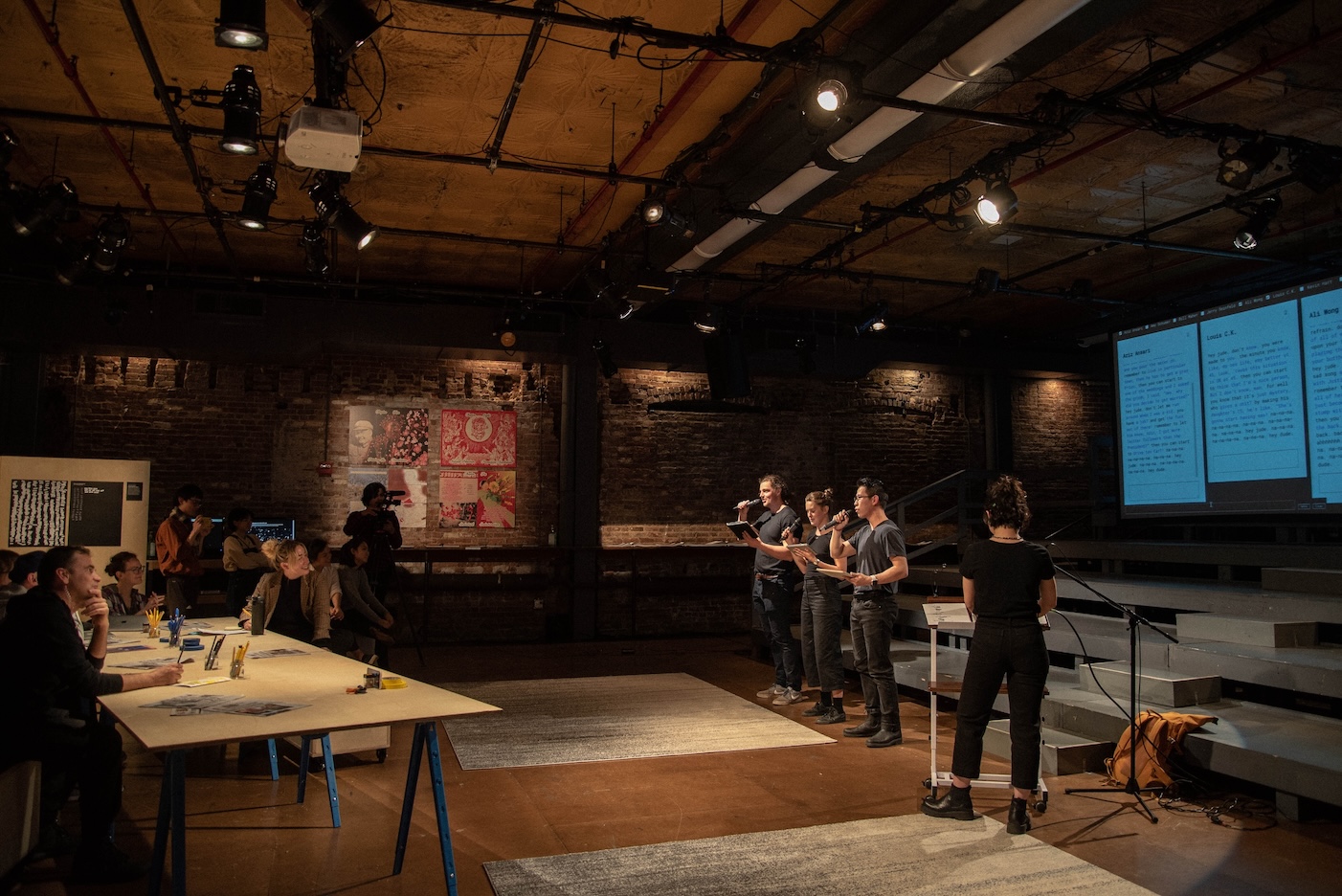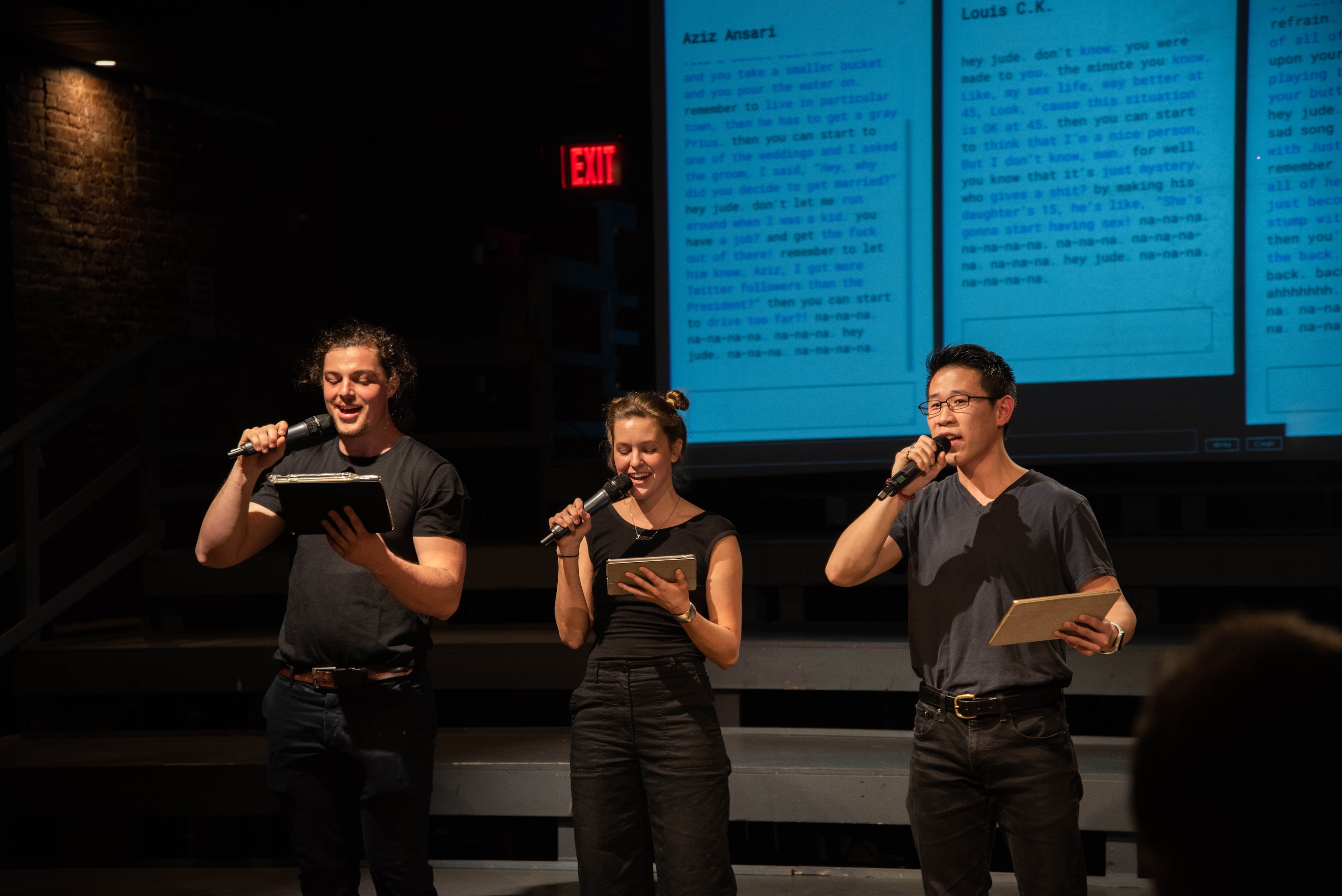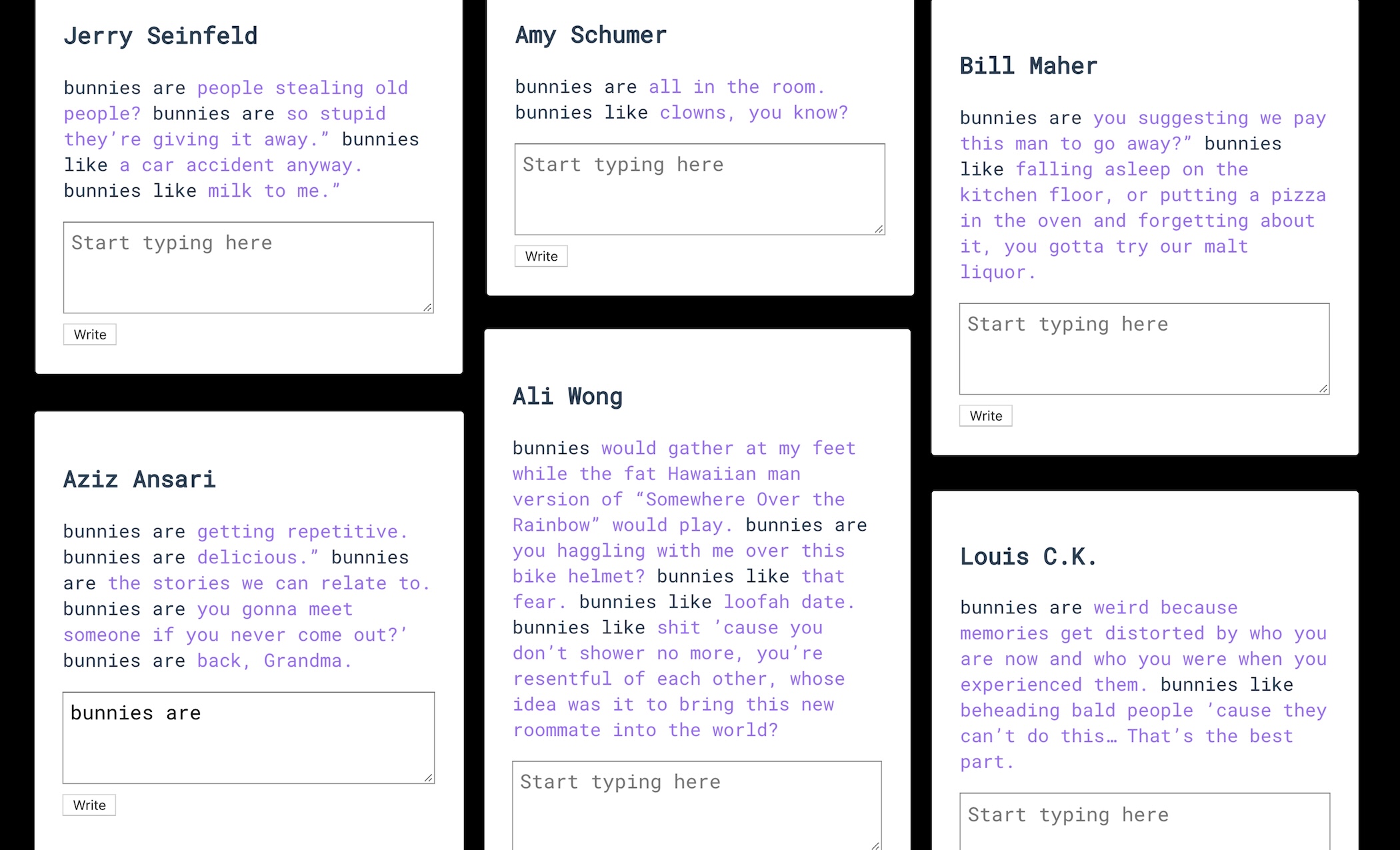The Background
The word "hack" has many meanings. In the computer programming realm, "hack" is known as an act of gaining or attempting unauthorized access to a network or computers. However, this term is also long established in the comedy industry, referring to materials copied from original comedians. My native language isn't English, and I struggled to become culturally competent in American society, where humor is also a crucial cultural pedestal. With my design background and programming ability, I started my design research in decoding the secrets behind becoming fluent in the comedy language.
The Idea
Hack(Comedy) is a computational comedy net art interface as well as a performance. The project aims to interrogate our perception of humor through live procedural generations that reflect the condensed themes and identities in the American comedy landscape. With text input such as words and phrases, virtual comedian modules will complete writing sentences using word references from the transcript compilations scraped from the internet. In the performance, the generated outcomes will be delivered by human actors.
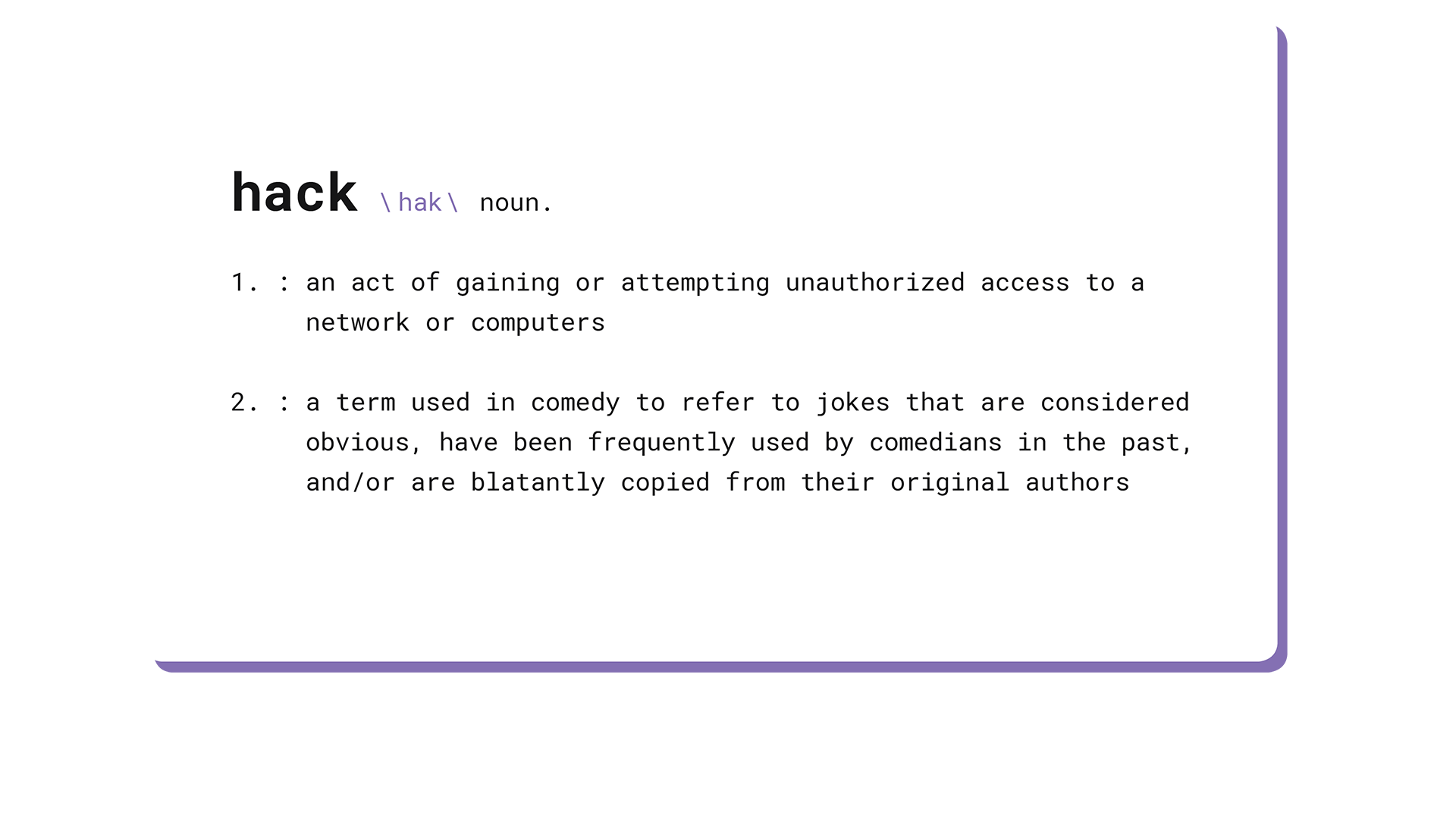
The Application
I built a computational comedy web application that allows visitors to write with virtual comedians who generate materials from borrowed comic sources.
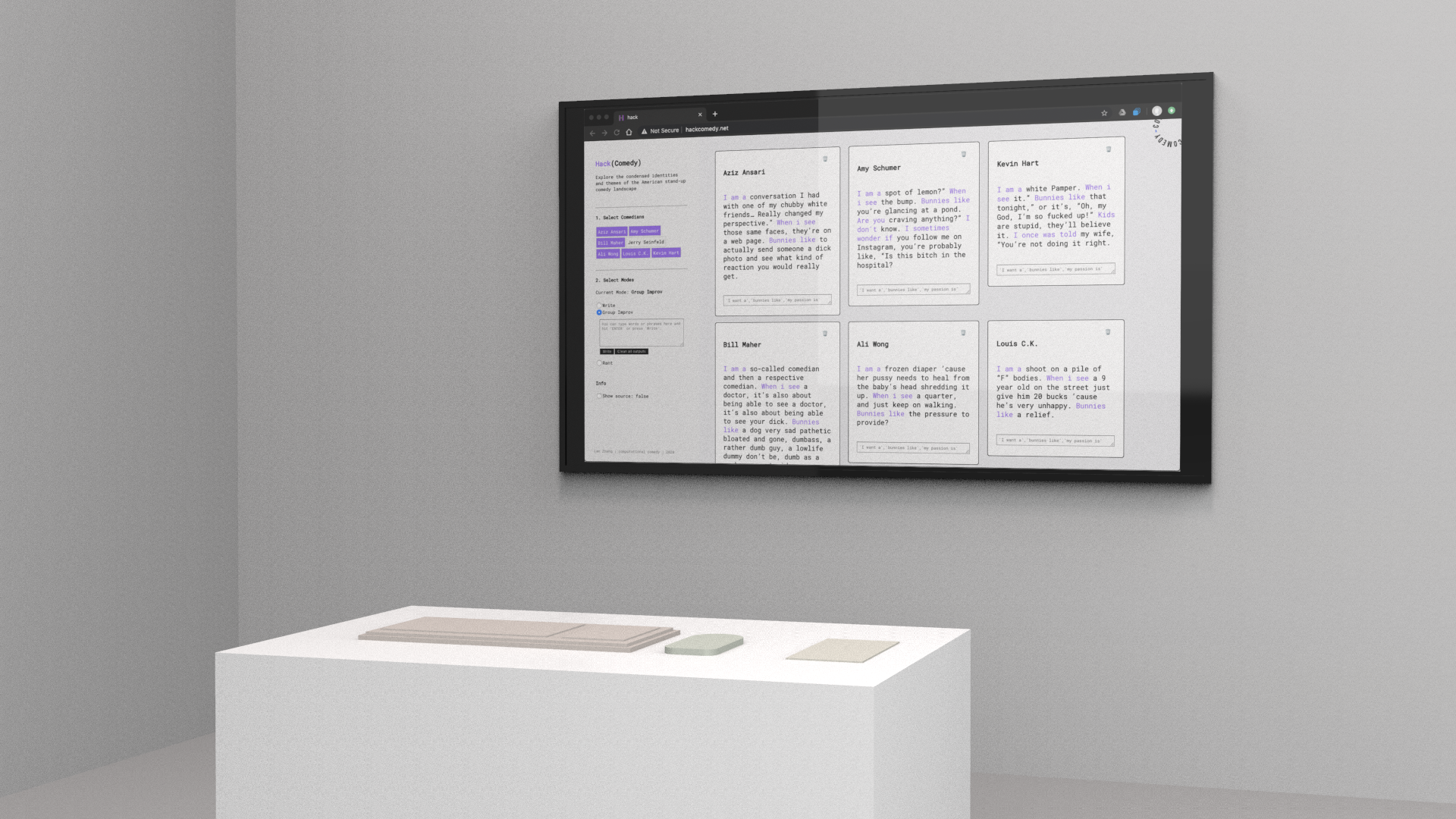
Visitors can interact with virtual comedians in various ways. You can write with one comedian at a time, compare different comedians' output to the same input simultaneously, or assign a fixed length of words you want all selected comedians to rant on their own for.
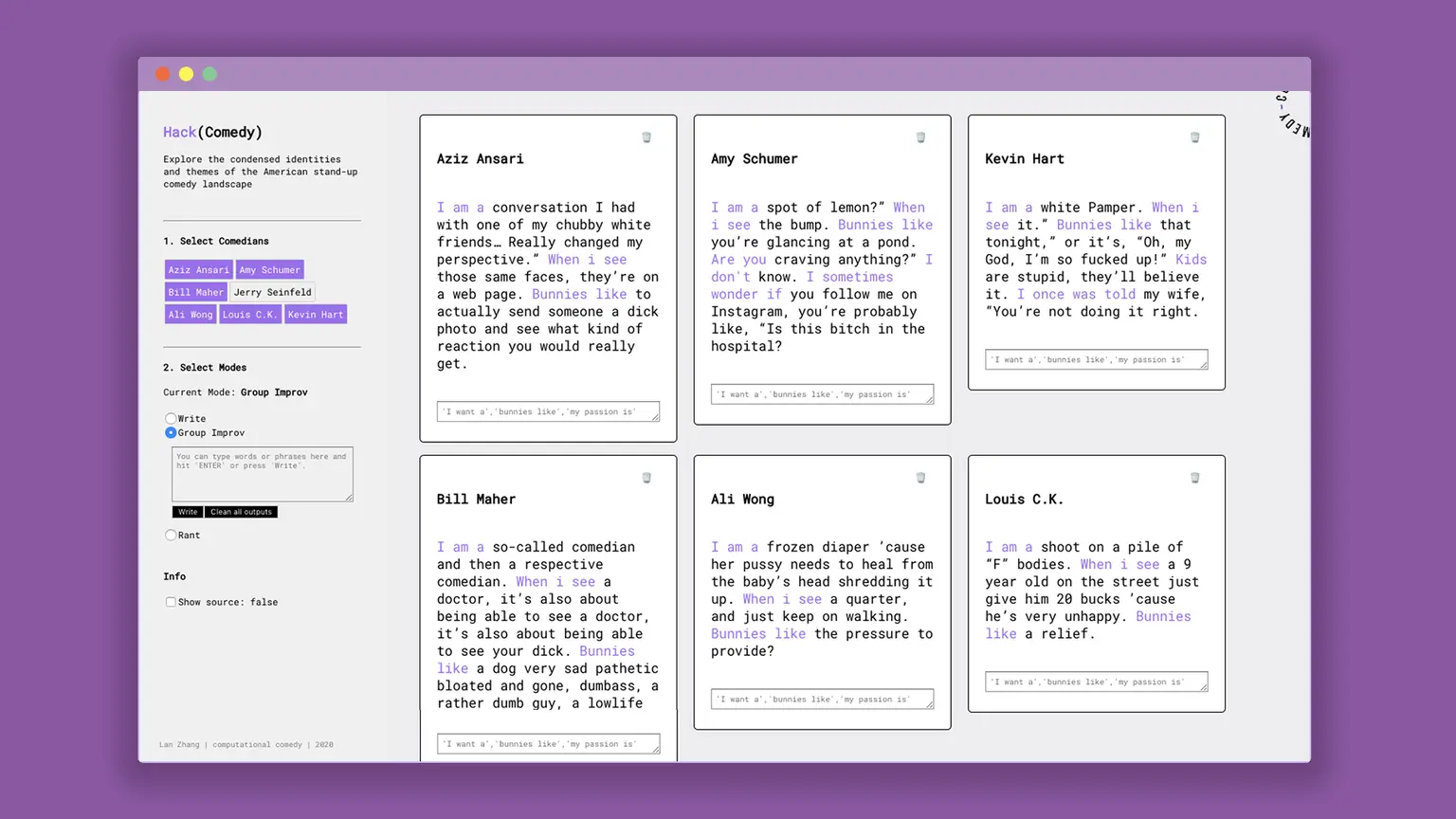
The Performance
Part of the Hack(Comedy) application was developed into a tool to carry out a computational comedy performance at the La Mama Experimental Theater during CultureHub's Re-Fest in March 2020. Selected themes of "mad-lib" style text were fed into the application, and human actors were choreographed to deliver the generated output verbally. There were complexities embedded throughout the performance, such as the juxtapositions among different comedians' generated outputs, the disjunction between the virtual identities and the human actors, and the unexpected absurdity of computationally crafted materials from borrowed comic sources.
